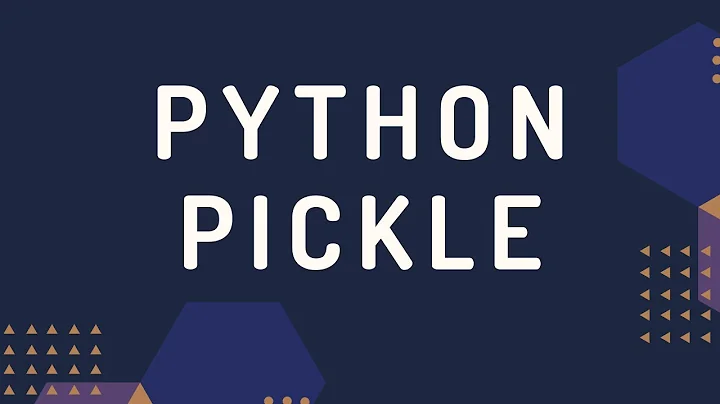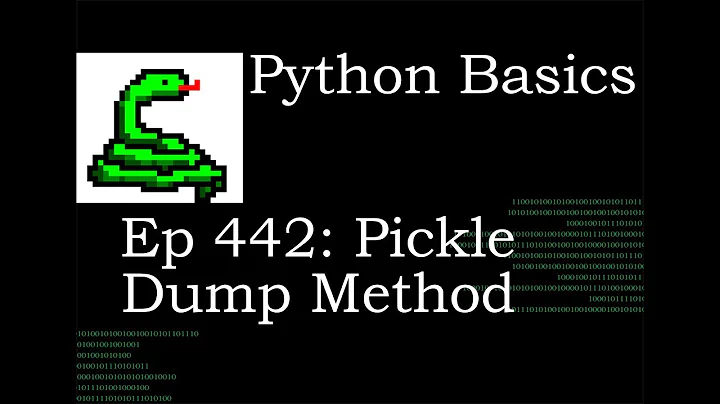Usage of pickle.dump in Python
36,429
Solution 1
The problem is that you're opening the file in text mode. You need to use binary here:
>>> f = open('data.txt','w')
>>> pickle.dump(123,f)
Traceback (most recent call last):
File "<stdin>", line 1, in <module>
TypeError: must be str, not bytes
>>>
>>> f = open('data.txt','wb')
>>> pickle.dump(123,f)
>>>
Solution 2
The write method for file-like objects, only accept a single string argument. The dumps method in the pickle module automatically casts arguments as strings, whereas the the dump method will write a pickled representation of the object to the open file. Since 123 is not a string it throws the TypeError error.
This is acknowledged in pickle.dump documentation.
Related videos on Youtube
Author by
Sergey
Updated on July 09, 2022Comments
-
Sergey almost 2 years
I'm trying to learn how to use the
picklemodule in Python:import pickle x = 123 f = open('data.txt','w') pickle.dump(x,f)Here's what I get:
Traceback (most recent call last): File "D:\python\test.py", line 5, in <module> pickle.dump(x,f) TypeError: must be str, not bytesHowever, this code works just fine:
import pickle dump = pickle.dump(123) print(dump)
What am I doing wrong?-
Edwin over 12 yearsJust something worth mentioning: for all file modes in Python, you should add a
'b'to the end of the string, even if it's only'rb', since it's platform independent. -
 Admin over 12 years@Edwin: It doesn't do platform-specific newline transliterations, but in 3.x there's an important different: Files opened in binary mode handle only bytes, files opened in text mode handle only text ("unicode"). While binary mode certainly makes sense for binary data, and text mode may not apply in some other cases, your suggestion is far too general. If you'd just going to decode the bytes to text, opening in binary mode is usually nonsense. It's easier and more robust to let Python handle that, and it's better at guessing encodings than we are at hardcoding encodings.
Admin over 12 years@Edwin: It doesn't do platform-specific newline transliterations, but in 3.x there's an important different: Files opened in binary mode handle only bytes, files opened in text mode handle only text ("unicode"). While binary mode certainly makes sense for binary data, and text mode may not apply in some other cases, your suggestion is far too general. If you'd just going to decode the bytes to text, opening in binary mode is usually nonsense. It's easier and more robust to let Python handle that, and it's better at guessing encodings than we are at hardcoding encodings. -
Edwin over 12 years@delnan Ah, ok; I just remembered reading that somewhere on the python.org site.
-
-
Sergey over 12 yearsThis I understand, but why doesn't the first piece of code (the one with pickle.dump) work?
-
garnertb over 12 yearsBecause the write method on the file object only accepts a single string argument.
-
 DSM over 12 years@SrinivasReddyThatiparthy: were you using Python 3? Things changed.
DSM over 12 years@SrinivasReddyThatiparthy: were you using Python 3? Things changed. -
 DSM over 12 years@SrinivasReddyThatiparthy: no, I mean that it would have worked in the past, and only stopped working in Python 3.
DSM over 12 years@SrinivasReddyThatiparthy: no, I mean that it would have worked in the past, and only stopped working in Python 3.





